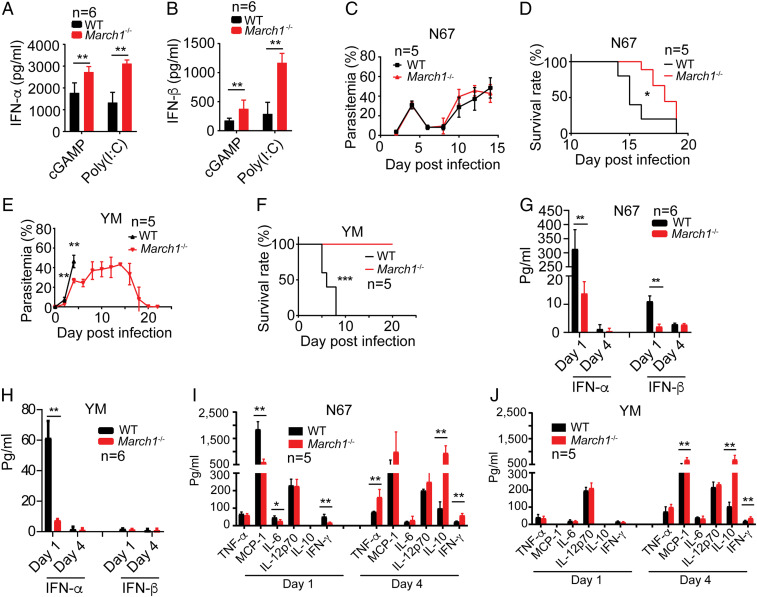Fig. 2.
MARCH1 deficiency reduces early IFN responses and improves host survival after malaria infections. (A and B) Serum levels of IFN-α (A) and IFN-β (B), measured using ELISA, 6 h after stimulation of WT and March1−/− mice with poly(I:C) or cGAMP (200 μg, i.v.). (C–F) Parasitemia (C and E) and host survival (D and F) after infection with N67 (C and D) or YM (E and F) parasites. Parasitemia was counted by microscopic examination of Giemsa-stained thin blood smears. (G and H) Serum levels of IFN-α and IFN-β in WT or March1−/− mice day 1 and day 4 pi with N67 or YM parasite. (I and J) Serum inflammatory cytokine and chemokine levels in WT or March1−/− mice day 1 and day 4 pi with N67 (I) or YM (J). All cytokines or chemokines were measured using ELISA. Mann–Whitney U test, error bars represent mean and SD comparing individual pairs (n = 5 or 6 replicates): **P < 0.01. For D and F, log-rank test: *P < 0.05, ***P < 0.001. Each experiment was independently repeated.

